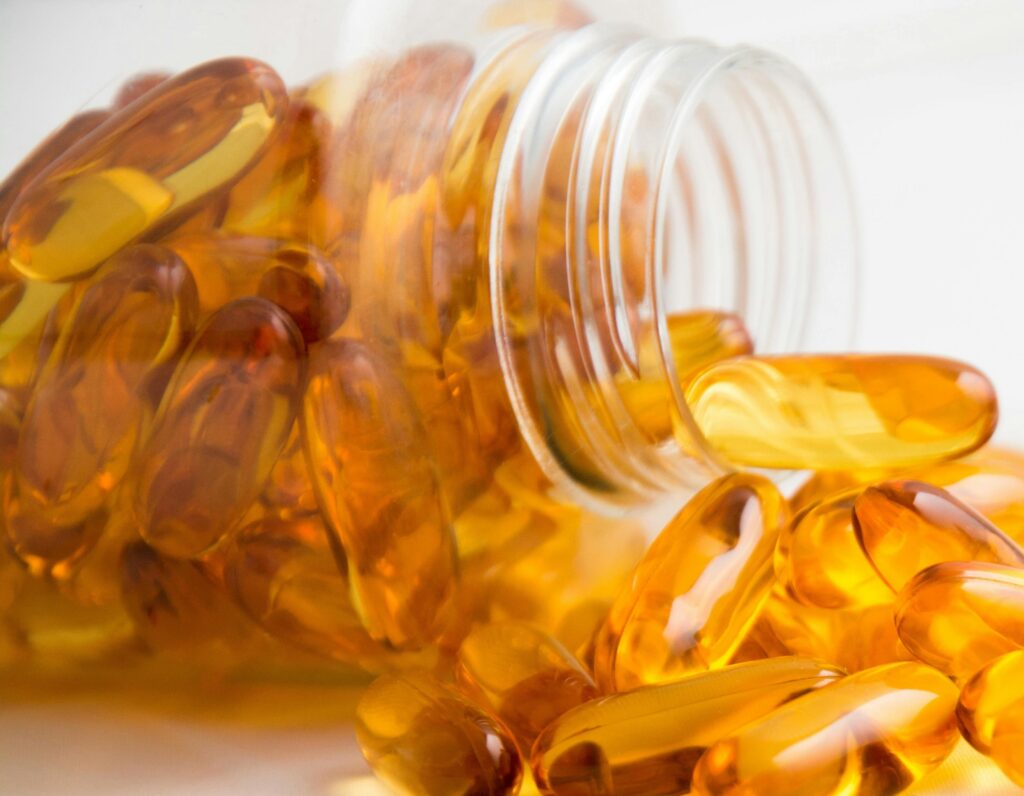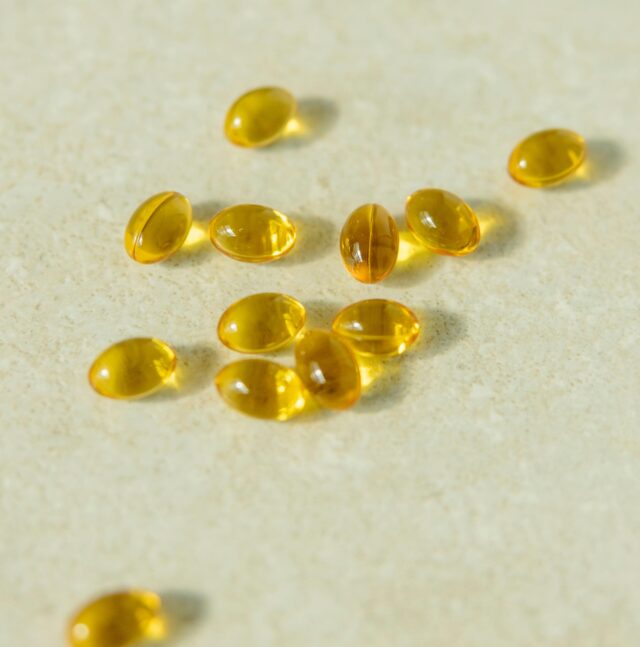Which Natural Supplement is Best for Glowing?
Which Natural Supplement is Best for Glowing?

Have you ever wondered which natural supplement is best for glowing?
A lot of people see their skin maintenance as their priority because they can’t afford to lose their confidence.
People love to be confident in their skin, and that is why the skincare industry is going higher.
As much as using skin care products such as moisturizers, serums, and eye creams can be of great help in improving your skin.
It is important to note that your diet and lifestyle play a major role in your health and skin health as well.
Following a healthy diet high in nutrient-dense foods is key for healthy skin, but some people wonder whether supplements including vitamins, minerals, and fatty acids like fish oil can improve the skin’s appearance.
In this article, you will learn which natural supplement a best for glowing to achieve healthier skin.
Natural Supplements Best For Glowing
1. Collagen
Many people religiously add a scoop of collagen to their coffee every morning or pop a daily collagen supplement in hopes that it will boost the health of their skin.
One of the most marketed supplements on the skin has been traced to collagen because of its medicinal properties for healthier skin.
Research is still on how collagen supplements affect the skin.
However, there is some evidence that they may help improve certain aspects of skin health, including wrinkle depth, elasticity, and hydration.
However, scientists warn that although collagen supplements have been shown to offer skin benefits in some studies, media and marketing claims are often exaggerated.
When you take collagen regularly, there is the possibility that it might help improve certain aspects of skin health.
Plus, collagen supplements are safe and haven’t been linked to any downsides.
If you feel that collagen may help you, check out Healthline’s picks of the best collagen supplements for skin health.
2. Fish oil (omega-3 fatty acids)
According to experts in the health and wellness industry, there’s not much that omega-3-rich fish oil can’t do.
Omega-3s have been shown to benefit health in a number of ways, such as by boosting heart health and easing joint pain.
The question is can they improve the appearance of your skin?
Omega-3 fatty acids play important roles in skin function, and inadequate intake of them can negatively affect your skin and even cause skin diseases.
Omega-3 fatty acids are essential for nurturing the skin’s lipid barrier, helping to maintain hydration and protecting against environmental irritants.
These fatty acids support the skin by retaining moisture, reducing the appearance of fine lines, and promoting a smooth, even texture.
When you take omega-3 supplements regularly, it can aid in soothing inflammation too, a common problem behind skin conditions such as acne and psoriasis.
Research shows that omega-3 supplements can help people with skin problems like atopic dermatitis, psoriasis, acne, and skin ulcers.
They might also offer some protection against skin cancers.
However, there isn’t much proof that omega-3 supplements can make skin look better, except for helping to clear up acne.
As much as omega-3 supplements may be a good choice for skin conditions like acne and psoriasis and can benefit the health of the heart, and brain, there isn’t much evidence that omega-3 supplements can make skin look better
If you want to give omega-3 supplements a try to help with a skin condition, talk it over with a dermatologist or another health professional.
3. Zinc: The Repair Specialist
To maintain a healthier skin., zinc plays a significant role in achieving it. It helps repair damaged skin and supports the regeneration of new, healthy cells.
This mineral is especially beneficial for those dealing with acne, as it reduces inflammation and regulates oil production, resulting in clearer skin.
Aside from this, zinc serves as a protective barrier against harmful UV rays, minimizing the risk of sun damage.
Adding zinc to your diet or skincare routine can greatly enhance your skin’s ability to heal and preserve its youthful vitality.
4. Biotin: Beauty Vitamin
Biotin, also known as Vitamin B7, is essential for maintaining the health of your skin, hair, and nails.
This vitamin supports the body’s keratin structure, promoting a strong and resilient complexion.
Sufficient levels of biotin facilitate the synthesis of fatty acids, which are crucial for nourishing the skin and preventing dryness and flakiness.
When you include biotin in your diet regularly or you take biotin supplements, it ensures your skin has the necessary components for a smooth, radiant appearance.
5. Multinutrient supplements
Multivitamins can be beneficial for individuals who may not get enough micronutrients from their diet.
You need multivitamins for your skin health.
Some research indicates that supplements containing a blend of vitamins, minerals, and other ingredients may help improve common skin concerns like dryness and dullness, particularly in certain individuals.
For instance, a 2019 study involving 50 women aged 35 to 65 found that those who took a supplement with a combination of vitamins, minerals, fatty acids, and other components for 12 weeks.
They experienced significant improvements in skin dullness, dryness, pigmentation, and overall appearance compared to a placebo group.
Taking a multivitamin could also enhance skin appearance in those who have deficiencies or insufficiencies in key nutrients that impact skin health, such as vitamin C, vitamin A, certain B vitamins, and zinc.
6. Probiotics
Probiotics, often used to support gut health, also play an important role in maintaining healthy skin.
An imbalance in gut microbes, known as dysbiosis, can lead to significant skin issues, including acne and rosacea.
Probiotic supplements may help restore a healthy balance of gut bacteria and have shown effectiveness in supporting individuals with conditions like acne and dermatitis.
However, restoring gut balance is not as simple as just taking a daily probiotic.
Factors such as diet, lifestyle, sleep, and stress levels all influence gut health.
If you have acne or other skin conditions that might benefit from probiotics, consider consulting a dermatologist for personalized recommendations.
If you don’t have any skin conditions but are interested in supporting your gut to enhance your skin’s appearance.
It’s important you recognize that probiotic supplements may not be necessary or suitable for everyone.
Seeking advice from a health professional, such as a registered dietitian, is wise before starting probiotics.
Especially if you have gastrointestinal issues or a medical condition affecting your immune system.
Why do I Need Supplements to Have Healthy skin?
Well, you need supplements to maintain your skin, which is why this article is about which natural supplement is best for glowing.
This article explains how supplements are important to your skin glow.
Supplements can be beneficial for improving certain skin conditions, such as acne.
They are essential for those who struggle to obtain enough nutrients from their they are generally not necessary for maintaining skin health.
The reality is that supplements cannot replace a nutritious diet when it comes to skincare.
If you’re generally healthy and looking to care for your skin from the inside out, start by evaluating your diet to identify any gaps.
To promote skin health, focus on the following:
- Stay Hydrated:
Ensure you maintain optimal hydration levels.
- Eat a Variety of Fruits and Vegetables:
Include plenty of these nutrient-rich foods in your meals.
- Include Healthy Fats and Proteins:
Make sure your meals and snacks contain healthy sources of fat and protein.
- Limit Poor Choices:
Reduce your intake of foods associated with poor skin health, such as sugary and ultra-processed items.
Research indicates that a healthy diet rich in plant-based foods, particularly fruits, can enhance the health and appearance of your skin and support healthy aging.
Fruits and vegetables, along with other nutrient-dense foods, contain compounds that protect against cellular damage, helping to preserve skin health.
Aside from this, avoiding cigarette smoke and excessive alcohol consumption is crucial for maintaining optimal skin health.
You can read other ways that natural remedies can be of help to other health conditions, like natural remedies for heart palpitations
Also, read this. Natural home remedies for heartburn
Conclusion on Which Natural Supplements Are Best for Glowing
Understanding which natural supplement is best for glowing is important to know how to choose when it comes to your skin routine.
As much as natural supplements for glowing skin can offer benefits for skin health, they should not replace a balanced diet and healthy lifestyle.
Supplements like collagen, omega-3 fatty acids, zinc, and biotin may help improve specific skin conditions and enhance overall skin appearance, particularly for those with nutrient deficiencies.
However, the foundation of glowing skin lies in a nutrient-rich diet, adequate hydration, and healthy habits.
It is important to add a variety of fruits, vegetables, healthy fats, and proteins into your meals that can significantly contribute to skin vitality.
Also, maintaining a lifestyle that avoids harmful substances, such as tobacco and excessive alcohol, is important for preserving skin health.
Ultimately, for those considering supplements, consulting with a healthcare professional is important to choose the best for you.
You can read more about how natural supplements can be of help to other conditions, like natural supplements for arthritis.














